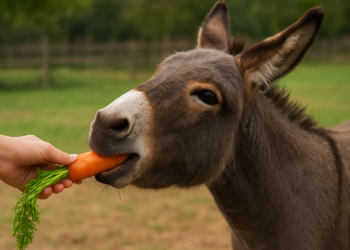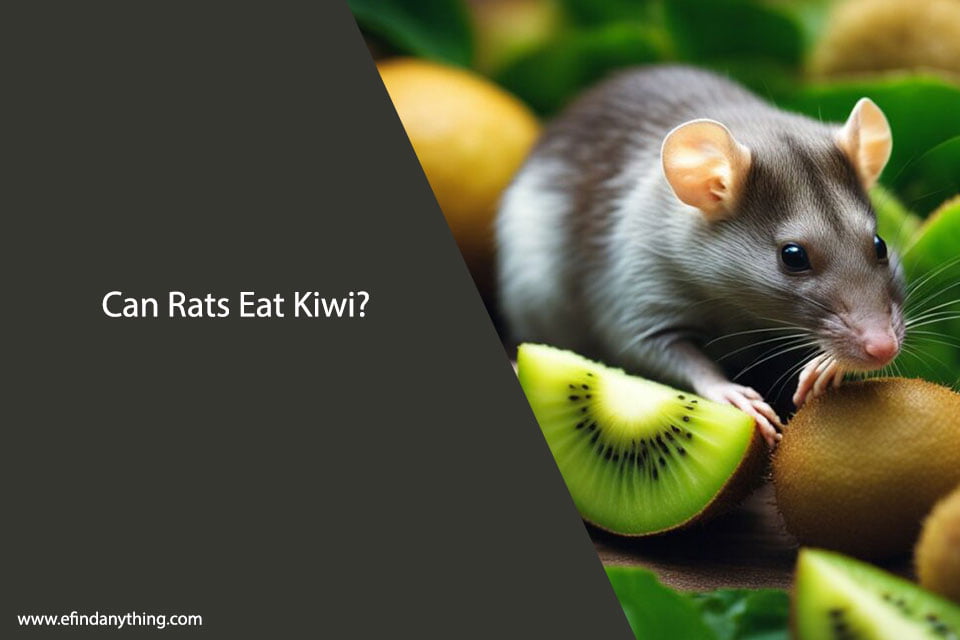Leopard geckos are fascinating creatures and make great pets for reptile enthusiasts. As with any pet, it is important to provide them with a balanced and nutritious diet. One question that often arises is whether leopard geckos can eat darkling beetles. In this article, we will explore this topic and provide you with the information you need to make an informed decision about feeding your leopard gecko.
Darkling beetles are a common food source for many reptiles and are readily available at pet stores. However, when it comes to feeding leopard geckos, it is important to know what foods are safe for them to eat. Leopard geckos are insectivores and require a diet that is high in protein and low in fat. While darkling beetles may seem like a good option, it is important to understand the potential risks associated with feeding them to your leopard gecko.
Dietary Basics of Leopard Geckos

As owners of leopard geckos, we must ensure that our pets receive a well-balanced diet to maintain their health and longevity. In the wild, leopard geckos are insectivores, primarily consuming crickets, mealworms, and other small insects. As such, it is important to provide our leopard geckos with a similar diet in captivity.
Leopard geckos require a diet that is high in protein, low in fat, and rich in calcium. It is recommended to feed them insects that are gut-loaded with a nutritious diet and dusted with calcium and vitamin D3 supplements. Feeding them a variety of insects, such as crickets, mealworms, waxworms, and superworms, can help ensure that they receive all the necessary nutrients.
It is important to note that leopard geckos should not be fed wild-caught insects or insects that have been exposed to pesticides or other harmful chemicals. Additionally, they should not be fed insects that are too large, as this can lead to digestive issues or impaction.
In conclusion, providing a well-balanced diet is crucial for the health and well-being of our leopard geckos. By following these dietary basics and offering a variety of gut-loaded and supplemented insects, we can help ensure that our pets thrive in captivity.
Nutritional Value of Darkling Beetles

Darkling beetles are a common prey item for leopard geckos in the wild and in captivity. They are a good source of protein and fat, which are important for the growth and maintenance of leopard geckos.
According to research, darkling beetles contain about 20-30% protein and 10-20% fat. This makes them a great source of nutrition for leopard geckos, especially for those that are growing and developing.
In addition to protein and fat, darkling beetles also contain other important nutrients such as calcium, phosphorus, and vitamins. These nutrients are essential for the overall health of leopard geckos and can help prevent common health issues such as metabolic bone disease.
It is important to note that while darkling beetles are a nutritious food source for leopard geckos, they should not be the sole source of their diet. A balanced diet that includes a variety of prey items such as crickets, mealworms, and waxworms is essential for the health of leopard geckos.
Overall, darkling beetles are a great addition to a leopard gecko’s diet and can provide important nutrients for their growth and health.
Risks of Feeding Darkling Beetles to Leopard Geckos

Feeding leopard geckos with darkling beetles is a common practice among pet owners. However, it is important to note that there are some risks associated with feeding these insects to your pet.
One of the main risks of feeding darkling beetles to leopard geckos is their hard exoskeleton. This can be difficult for the gecko to digest, and may cause impaction, a condition where the gecko’s digestive system becomes blocked. This can be a serious and potentially fatal condition if left untreated.
Another risk is the potential for the beetles to carry parasites or diseases. Darkling beetles are known to be carriers of mites, which can easily spread to your gecko and cause health problems. Additionally, some beetles may carry harmful bacteria or viruses that can make your gecko sick.
It is also important to note that not all darkling beetles are safe for leopard geckos to eat. Some species of darkling beetles contain chemicals that can be toxic to your gecko. Therefore, it is important to do your research and ensure that the beetles you are feeding your gecko are safe and appropriate for their diet.
In conclusion, while feeding leopard geckos with darkling beetles can be a good source of nutrition, it is important to be aware of the potential risks associated with this practice. It is always best to consult with a veterinarian or experienced reptile keeper before introducing any new foods to your gecko’s diet.
How to Safely Introduce Darkling Beetles to a Leopard Gecko’s Diet

Darkling beetles are a great source of nutrition for leopard geckos. However, it is important to introduce them to your gecko’s diet safely and in moderation. In this section, we will discuss how to prepare darkling beetles and how often and how much to feed your leopard gecko.
Preparation of Darkling Beetles
Before feeding darkling beetles to your leopard gecko, it is important to prepare them properly. Here are the steps to follow:
- Purchase high-quality darkling beetles from a reputable source. Avoid collecting them from the wild as they may carry diseases or parasites.
- Keep the beetles in a well-ventilated container with a substrate such as oats or bran. This will provide them with a source of food and help keep them healthy.
- Gut-load the beetles by feeding them a nutritious diet such as vegetables and fruits. This will ensure that they are packed with nutrients that your gecko needs.
- Dust the beetles with a calcium supplement before feeding them to your gecko. This will help prevent calcium deficiency and other health problems.
Feeding Frequency and Quantity
Leopard geckos should be fed darkling beetles in moderation. Here are some guidelines to follow:
- Feed your gecko 2-3 darkling beetles per feeding, 2-3 times per week.
- Do not feed your gecko too many beetles at once, as this can cause digestive problems.
- Monitor your gecko’s weight and adjust the feeding frequency and quantity accordingly.
In conclusion, darkling beetles can be a great addition to your leopard gecko’s diet. By following these guidelines, you can safely introduce them and provide your gecko with the nutrition they need to thrive.
Alternative Insects for Leopard Gecko Diets
When it comes to feeding leopard geckos, variety is key. While crickets are a popular staple, there are many alternative insects that can provide a balanced diet for your gecko.
One such alternative is the mealworm. Mealworms are high in protein and fat, making them a great option for leopard geckos. They are also easy to find and relatively inexpensive.
Another option is the waxworm. Waxworms are high in fat and low in protein, so they should be fed in moderation. However, they are a great treat for your gecko and can help provide some variety in their diet.
Superworms are another alternative insect that can be fed to leopard geckos. They are high in protein and fat, making them a great option for growing geckos. However, they should be fed in moderation as they can be difficult to digest.
Darkling beetles are also a potential option for leopard geckos. They are high in protein and low in fat, making them a healthy choice for your gecko. However, they should be fed in moderation as they can be difficult to find and may not be available at all times of the year.
Overall, it is important to provide a varied diet for your leopard gecko to ensure they are getting all of the nutrients they need to thrive. By incorporating alternative insects into their diet, you can help keep your gecko healthy and happy.
Understanding Leopard Gecko Feeding Behaviors
Leopard geckos are known for their unique feeding behaviors. As opportunistic feeders, they will eat almost anything that moves and fits in their mouth. However, it is important to understand their feeding behaviors to ensure that they are getting the proper nutrition they need.
Leopard geckos are insectivores, meaning they primarily eat insects. Their diet should consist of a variety of insects to provide them with the necessary nutrients. It is recommended to feed them a combination of crickets, mealworms, and waxworms.
When feeding leopard geckos, it is important to consider the size of the prey. The size of the prey should be appropriate for the size of the gecko. Feeding them prey that is too large can cause health issues such as impaction.
Darkling beetles are a popular choice for leopard gecko owners as they are easy to find and affordable. However, it is important to note that darkling beetles should not be the primary food source for leopard geckos. They are high in chitin, which can be difficult for leopard geckos to digest.
In conclusion, understanding leopard gecko feeding behaviors is crucial to their health and well-being. Providing them with a diverse diet of appropriate sized insects will ensure that they receive the necessary nutrients for a healthy life.
Health Monitoring and Diet Adjustment

When feeding our leopard geckos darkling beetles, it is important to monitor their health and adjust their diet accordingly. While darkling beetles are a good source of protein, they should not make up the entirety of a leopard gecko’s diet.
To ensure our leopard geckos are healthy, we should regularly monitor their weight, activity level, and overall behavior. If we notice any changes in these areas, it may be a sign that our gecko is not receiving a balanced diet.
In addition to monitoring our gecko’s health, we should also adjust their diet as needed. This may involve adding other types of insects or supplements to their diet, or reducing the number of darkling beetles they receive.
It is important to note that while darkling beetles are safe for leopard geckos to consume, they should not be the only insect in their diet. A varied diet that includes a mix of insects, such as crickets, mealworms, and waxworms, will provide our geckos with the necessary nutrients they need to thrive.
Overall, by monitoring our leopard gecko’s health and adjusting their diet as needed, we can ensure that they remain healthy and happy.
Frequently Asked Questions
What are the best dietary options for leopard geckos?
Leopard geckos are insectivores and should be fed a diet consisting of gut-loaded insects. Some of the best options include crickets, mealworms, waxworms, and dubia roaches. It’s important to vary their diet to ensure they receive a balanced nutritional intake.
Is it safe for leopard geckos to consume insects like silkworms?
Yes, silkworms are safe for leopard geckos to consume and are actually a great source of protein. However, they should not be the sole component of their diet as they lack certain nutrients that are essential for leopard geckos.
Are there any risks associated with feeding mealworm beetles to leopard geckos?
Mealworm beetles can be fed to leopard geckos, but they should be fed in moderation. Overconsumption of mealworm beetles can lead to impaction, a potentially fatal condition where the digestive tract becomes blocked.
Can leopard geckos eat insects found within their enclosure, such as black beetles?
It’s not recommended to feed insects found within their enclosure to leopard geckos as they may carry parasites or other harmful substances. It’s best to stick to commercially bred insects that have been properly gut-loaded and dusted with calcium and other essential nutrients.
What insects are nutritious and safe for leopard geckos to eat?
In addition to crickets, mealworms, waxworms, and dubia roaches, other insects that are safe and nutritious for leopard geckos include hornworms, superworms, and phoenix worms. It’s important to vary their diet to ensure they receive a balanced nutritional intake.
How should darkling beetles be prepared before feeding them to leopard geckos?
Darkling beetles should be properly gut-loaded and dusted with calcium and other essential nutrients before feeding them to leopard geckos. It’s also important to remove the hard exoskeleton before feeding them to prevent any digestive issues.











